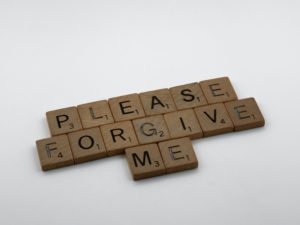Tagged: “forgiveness”
Dr. Enright Interviews on Wisconsin Public Radio’s “The Morning Show”

Image by pexels.com
On December 6, 2023, Dr. Enright interviewed with Kate Archer Kent, who hosts “The Morning Show” on Wisconsin Public Radio. The 43-minute episode is entitled, How forgiveness can heal individuals and communities.
Click on this link to listen to the episode!
Dr. Enright Interviews with Dr. Sanjay Gupta on His CNN Podcast, Chasing Life

Image by pexels.com
On December 5, 2023 Dr. Enright engaged in a 35 minute interview with Dr. Sanjay Gupta for his CNN podcast, Chasing Life. It was a wide-ranging interview including what forgiveness is and is not, the scientific evidence for the efficacy of forgiving those who have been deeply unjust, and the psychological and physical outcomes for those who forgive. They even discussed the effects of forgiving on the brain. Click on this link to listen to the episode or read the transcript of the episode!
Jewish Mother Forgives the Israeli Soldiers Who Mistakenly Killed Her Hostage Son
The Times of Israel newspaper, on December 22, 2023, reported on a story in which one of the soldiers visited the mother, Iris Haim, of an Israeli citizen who was mistakenly shot in Gaza by soldiers from the 17th Battalion of the Bislamach Brigade. The son, Yotam Haim, was killed on December 15 along with two other hostages, who were mistaken as a threat.

Image by Pexels.com
In a recorded message from Mrs. Haim to the soldiers, she said this as reported in The Times of Israel: ““I am Yotam’s mother. Iwanted to tell you that I love you very much, and I hug you here from afar. I know that everything that happened is absolutely not your fault……I want you to look after yourselves.”
The soldier, as reported in the newspaper, said this to Mrs. Haim: ““We received your message, and since then we have been able to function again…….Before that we had shut down.” In other words, their receiving Mrs. Haim’s forgiveness allowed them to reclaim their lives.
Such early and sincere forgiveness is not for everyone. For example, the brother of one of the others slain in this incident expressed bitterness toward the Defense Minister of Israel, blaming him and saying that he would “hunt after him.” When asked if his anger would consume him, the brother of the slain man replied, again as reported in The Times: ““I don’t have anything left to consume.”
Iris Haim is a living example of how forgiveness, after severe tragedy, can amaze and surprise the world.
In your Discovery Phase of the forgiveness process, you discuss meaning and purpose in a person’s life upon forgiving others. What is the difference between finding meaning and finding purpose?
Meaning is the cognitive activity of answering the “why question” in a positive way regarding what was suffered. A likely insight gained is that I am stronger and more aware of others’ suffering, now that I have walked the forgiveness path. Thus, to find meaning is primarily a cognitive activity. Purpose concerns the actions that now flow from the meaning. If a person begins to see that forgiving has been a positive journey in making one stronger, more merciful, then one purpose that might flow from this insight is this: I now will commit to aiding others in their suffering, in helping them to forgive.
In my observing people who have been hurt by others, there seems to be a certain closed-mindedness that makes forgiveness difficult. Here is what I mean: People kind of close down to listening and discussing civilly with others once they have been hurt. Wouldn’t this closed-mindedness to open communication hinder forgiving?
I think you are conflating forgiving and reconciling. You can forgive a person starting within your own heart by committing to do no harm to the other, with a commitment to offering respect and eventually even love (in the sense of agape) toward that other person. This occurs even without communicating with the other person. Reconciliation, in contrast, does require listening and having open communication. So, when this listening and discussing civilly are closed down, this likely will hinder the reconciliation process, but not the process of forgiving.



